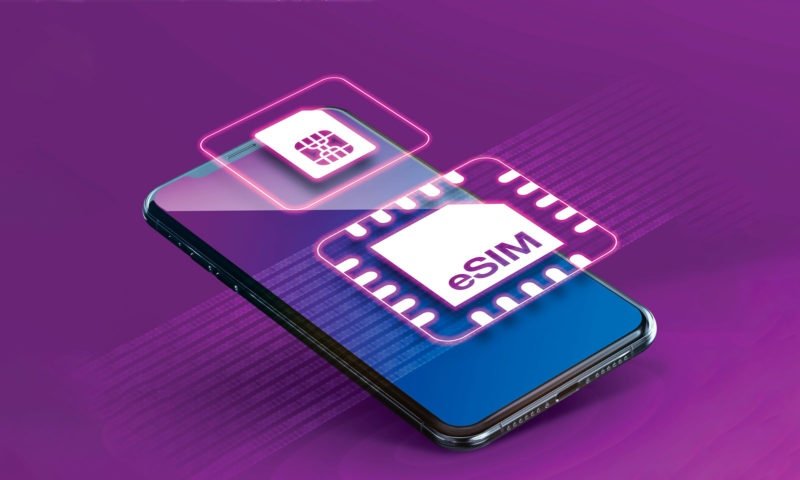What is an Esim?
An eSIM (embedded SIM) is a type of SIM card that is built into a device, allowing the user to connect and authenticate their device with a wireless network without the need for a physical SIM card. This type of technology is becoming increasingly popular with smartphones and other mobile devices. An eSIM is basically a small chip inside your phone and works in a similar way to the NFC chip that’s used for payment tech like Apple Pay and Google Pay. The information on an eSIM is reliable, meaning you can decide to change your operator with a simple phone call. They’re really easy to add to a data plan – connecting devices with eSIMs to a mobile account can be done in minutes. eSIM is backed by GSMA, the Association of Mobile Networks, and that organization has defined the standards for eSIM worldwide.
Advantages of Esim:
They make the process of switching carriers much easier and more convenient.
They are smaller and more secure than traditional SIM cards.
They can be used in multiple countries without the need to switch SIMs.
This allows for more flexible data plans and usage tracking.
They are compatible with both GSM and CDMA networks.
Are there any disadvantages to eSIM?
Yes, there are some disadvantages to eSIM. One disadvantage is that it requires a compatible device to be used, which may not be available for certain models or brands. Another disadvantage is that the Regional eSIM cannot be swapped between different devices, so users have to purchase a separate eSIM for each device they want to use. Additionally, eSIMs are not yet widely available in many parts of the world, so users may not be able to take advantage of them in their area. Finally, some carriers may not support eSIMs, which could limit the user’s options.
What devices support eSIM?
At the moment, most smartphones and wearables support eSIM technology, including Apple, Samsung, Google, Huawei, and others. Additionally, some laptops and tablets are now available with eSIM support.
What networks support eSIM?
Most of the major mobile network operators now support eSIM technology, including AT&T, Verizon, T-Mobile, Vodafone, Orange, EE, and more.
eSIM is great for regular travellers
eSIM makes it much easier for people who travel frequently to stay connected, as they don’t need to worry about swapping SIMs when they arrive in a new country. It can be activated remotely, and users can switch between different operators without ever having to physically change their SIM card.
What does eSIM mean for devices?
eSIM (embedded SIM) is a virtual SIM card that is embedded directly into a device, allowing users to switch carriers or connect to a network without having to physically swap out SIM cards. This is especially useful for devices like smartphones and tablets that are used in multiple countries, as users can easily switch carriers and connect to different networks without needing to find a new physical SIM card. eSIMs also offer a number of benefits such as improved security, convenience, and cost savings.
How to use eSIM with a compatible iPhone
Make sure your iPhone is compatible with eSIM. Check your phone’s manual or the manufacturer’s website to find out if it is.
Purchase an eSIM from your wireless provider.
Activate the eSIM. On your iPhone, go to Settings > Cellular > Add Cellular Plan. Scan the QR code provided by your wireless provider, or enter the details manually.
Select eSIM as the primary line. To do this, go to Settings > Cellular > Cellular Plans > Select Primary Line.
Set up automatic payments. To ensure that you never miss a payment, set up automatic payments with your wireless provider.
Enjoy the convenience of eSIM. You can now switch between different carriers without having to swap out SIM cards.

